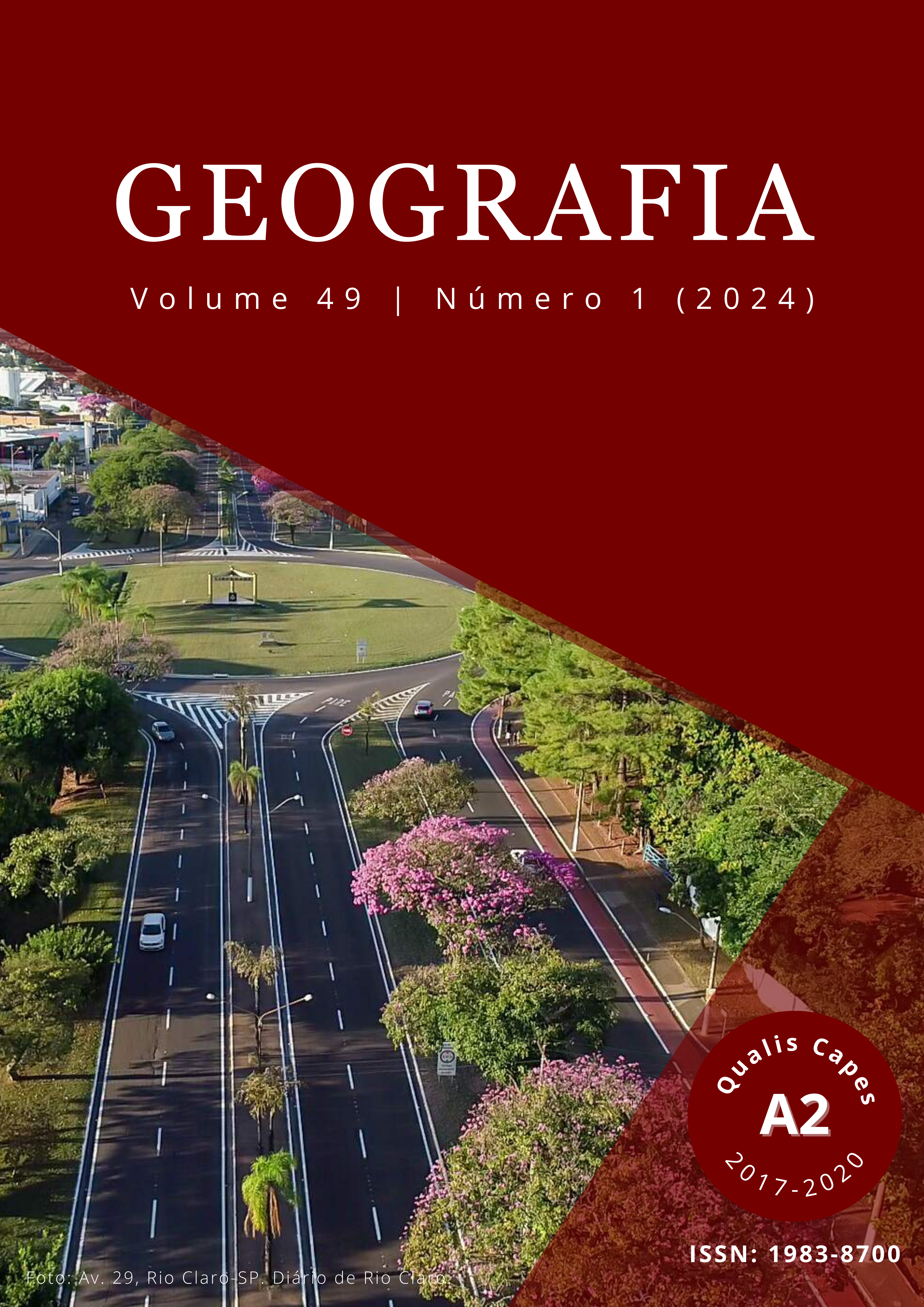Agents producing urban spaces: the case of the city of Novo Hamburgo – Rio Grande do Sul, Brazil
DOI:
https://doi.org/10.5016/geografia.v49i1.17556Abstract
All cities are full of contradictions. Novo Hamburgo, for example, constitutes a mid-sized city in the Metropolitan Region of Porto Alegre (RMPA), in the state of Rio Grande do Sul, Brazil. This city arose from German colonization in the beginning of the 19th century, went through a phase of industrial expansion in the 20th century, and faced an economic slowdown with national and international competition by the end of that same century. All those processes revealed the contradictions among the agents producing urban spaces that struggle for their hegemony. In this context, this research tries to identify and debate the actions of the main agents producing the urban space in Novo Hamburgo, as well as describe their main features. To do so, this research was developed using bibliographical data survey, official documents, fieldwork, and data consolidation in clerk work. This work showed contradictions and interests among the different agents producing urban spaces, having the State as the main agent in the urban formation and expansion of the city.
Downloads
Published
Issue
Section
License
Copyright (c) 2024 GEOGRAFIA

This work is licensed under a Creative Commons Attribution 4.0 International License.
The authors maintain the copyright and grant GEOGRAFIA the right of first publication, with the articles simultaneously licensed under the Creative Commons BY 4.0 License, which allows sharing and adapting the articles for any purpose, as long as appropriate credits and provisions of image rights, privacy or moral rights. Other legal attributions can be accessed at: https://creativecommons.org/licenses/by/4.0/legalcode.en.
Geography, Rio Claro, SP, Brazil - eISSN 1983-8700 is licensed under the Creative Commons BY 4.0 License.





